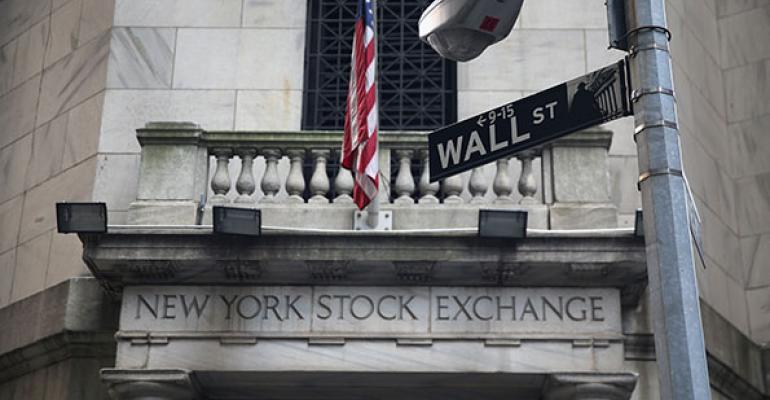By Noah Buhayar
(Bloomberg) --Tax and health-care reform are so formidable that Donald Trump is more likely to focus first on the financial industry, potentially ripping up core parts of the 2010 Dodd-Frank Act, according to Christopher Whalen, the veteran Wall Street analyst.
The president-elect could seek to modify legislation introduced this year by House Financial Services Chairman Jeb Hensarling, Whalen told clients in a note Wednesday, citing an unidentified person close to Trump’s circle. Whalen oversees research at the Kroll Bond Rating Agency and, in past years, wrote frequent columns for Breitbart News.
Hensarling’s proposals, dubbed the Choice Act, include lifting the Volcker Rule -- which restricts deposit-taking banks from wagering their own money in markets -- as well as a cap on debit-card swipe fees. He would also eliminate government powers to take apart failing financial firms and weaken the reach of the Consumer Financial Protection Bureau.
“Our decidedly speculative bet is that a modified version of the Choice Act could be tweaked to make it palatable to the Senate and, despite Democratic opposition, could become law far more easily” than tax reform or replacing Obamacare, Whalen wrote. “We note that Rep. Hensarling is very close to Vice President-elect and Indiana Governor Mike Pence from the latter’s days in Congress, and that Hensarling even traveled with the campaign.”
Representatives for Trump didn’t immediately respond to messages seeking comment.
‘Highest Probability’
Hensarling, a Texas Republican, has sought to scrap key pieces of Dodd-Frank, the biggest overhaul of U.S. financial regulation since the Great Depression. Passed in response to the 2008 financial crisis, the 2010 law won’t end bank bailouts and hinders economic growth, he has said. Wall Street firms including JPMorgan Chase & Co. and Goldman Sachs Group Inc. spent years trying to ease the Volcker Rule’s final wording to limit its impact on profits.
Hensarling’s bill would eliminate the Financial Stability Oversight Council’s ability to determine which companies are systemically important, reduce the regulatory burden for community banks, and exempt highly capitalized banks from some of the strictest regulations that stemmed from Dodd-Frank. It also would replace the CFPB’s lone director with a commission.
“For our money, passage of an amended version of the Choice Act has the highest probability of success in 2017,” Whalen wrote. “Needless to say, the financial services industry would be very supportive.”
--With assistance from Elizabeth Dexheimer and Jennifer Jacobs. To contact the reporter on this story: Noah Buhayar in Seattle at [email protected] To contact the editors responsible for this story: Jesse Westbrook at [email protected] ;Dan Kraut at [email protected] David Scheer, Dan Reichl





